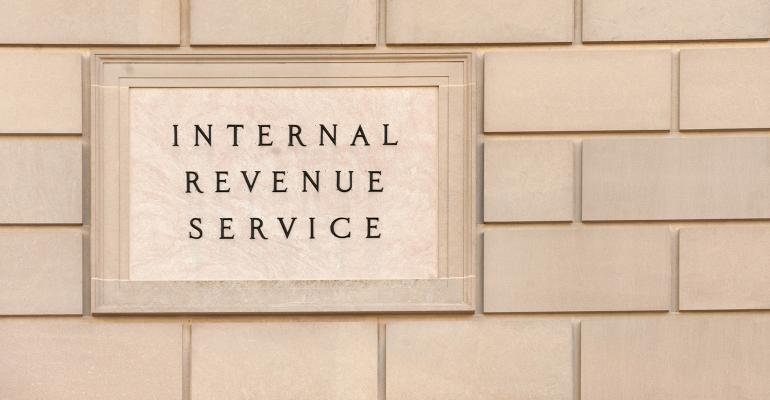In Private Letter Ruling 201814001 (released April 6, 2018), the Internal Revenue Service issued three rulings related to generation-skipping transfer, gift and income tax, in the context of a state court’s construction of ambiguous terms of a trust.
Terms of the Trust
Prior to Sept. 25, 1985, a settlor established an irrevocable trust for the benefit of his lineal descendants. The trust provided that as much net income and principal as the trustees may think desirable shall be expended for the welfare, comfort, support and education of the settlor’s children, their spouses, and their issue and descendants. When the trust terminated, the principal shall be paid per capita to the settlor’s then-living descendants and in default, to charity.
Ambiguous Terms
The settlor had three biological children (Child 1, Child 2 and Child 3). Child 1 had three biological children. Child 2 adopted two children. Child 3 had no children.
The trust never defined “issue,” “descendants” and “children,” so it was unclear whether those terms included the settlor’s adopted grandchildren. The settlor claimed he intended the trust to benefit only blood descendants.
The trustees petitioned the court for a declaratory judgment to construe the ambiguous terms of the trust to be consistent with the settlor’s intent. The state court issued an order construing the terms “issue,” “descendants” and “children” to include only blood/genetic descendants of the settlor and exclude the adopted grandchildren.
After the state court’s order, the trustees asked the IRS to rule on whether such order affected the trust’s exempt status for GST tax purposes and caused any distribution to be subject to GST tax. The trustees also asked whether the state court order would result in a transfer that’s subject to gift tax and whether a taxable disposition occurred. The IRS answered all three questions in the negative.
No GST Tax
Internal Revenue Code Section 2601 imposes a tax on a GST made after Oct. 22, 1986. A transfer to a trust that was irrevocable on or before Sept. 25, 1985 isn’t subject to GST tax, except to the extent the transfer was made out of the corpus by an actual or constructive addition after Sept. 25, 1985. Treasury Regulations Section 26.2601-1(b)(4)(i)(C) provides that a judicial construction to resolve an ambiguity won’t cause an exempt trust to be subject to GST tax if (1) the judicial action involved a bona fide issue and (2) the construction was consistent with applicable state law that would be applied by the highest court of the state.
The IRS found that the terms of the trust did present a bona fide issue as to whether an adopted grandchild was a member of the class of “issue,” “descendants” or “children.” Under the common law of the state where the trust was created, a settlor’s intent controlled the interpretation of the terms of a will or trust. In this case, the settlor indicated that he intended only blood relatives to be beneficiaries of the trust. Furthermore, at the time the settlor established the trust, there was state common law that in the absence of actual intent, a presumption arose that “children” excluded adopted children. After the trust was established, there was a new rule of construction that reversed state common law and included adopted children in the meaning of “children,” absent a settlor’s contrary intent. But, the state court’s order construing the ambiguous terms was consistent with applicable state law that would be applied by the highest court of the state at that time. Thus, the state court’s order construing the terms of the trust didn’t affect the trust’s exempt status for GST tax purposes and wouldn’t result in a transfer of property that would be subject to GST tax under Section 2601.
No Gift Tax
A tax is imposed on a transfer of property by gift (IRC Section 2501). IRC Section 2511(a) imposes a tax on gifts made in trust. Treas. Regs. Section 25.2511-1(c) provides that any transaction in which an interest is gratuitously passed constitutes a gift subject to tax. When property is transferred for less than full consideration, the amount by which the value of property exceeds the value of consideration is deemed a gift.
In this case, the state court’s order construing the ambiguous terms wasn’t a transfer for gift tax purposes. Thus, the order didn’t constitute a taxable gift under Section 2501.
No Disposition of Trust Interests
IRC Section 61(a)(3) provides that gross income includes gains derived from dealings in property as well as income from the interest in a trust. A taxpayer shall recognize gain or loss from a disposition of property (IRC Section 1001(b)).
When the state court issued its order clarifying the ambiguous terms, it was carrying out the intent of the settlor, not disposing of trust interests. Thus, the order wouldn’t result in the realization of gain or loss under IRC Sections 61 and 1001.





